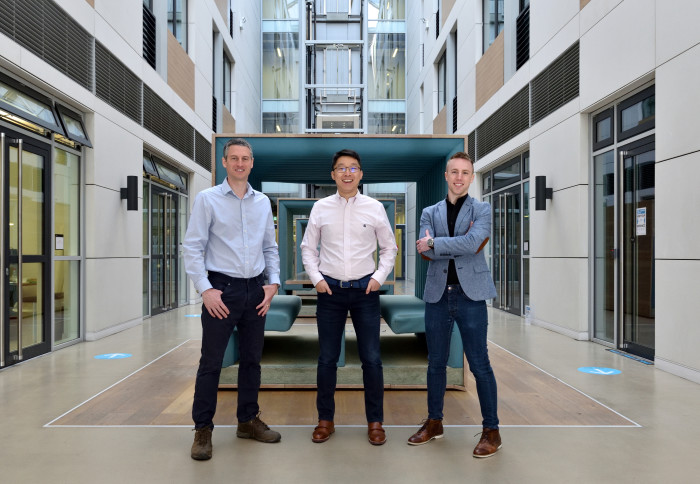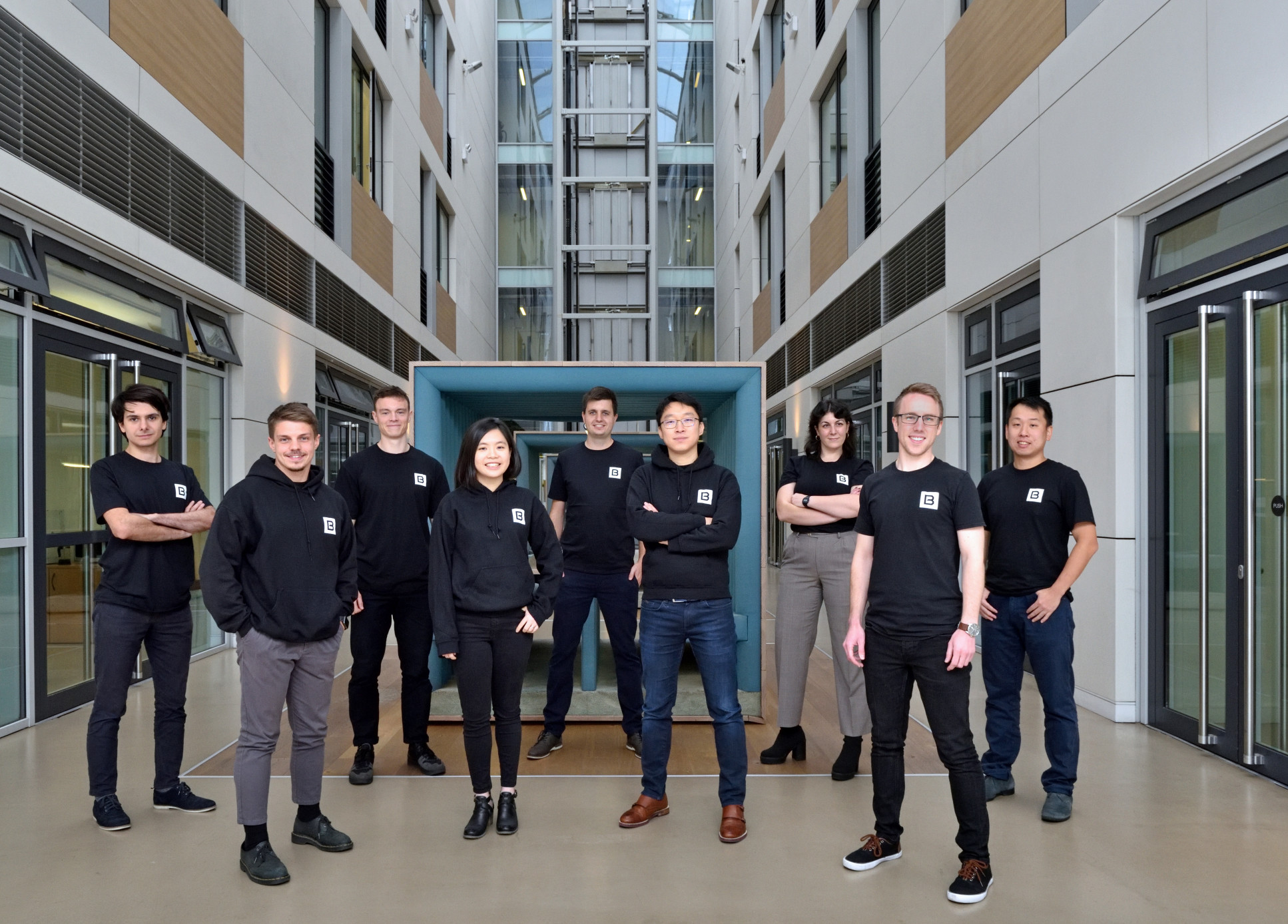Imperial startup’s advanced battery management tech sparks £1.5m investment
by Gavin Reed

Breathe Battery Technologies was founded in 2019 by an Imperial team: Professor Gregory Offer, Dr Yan Zhao and Dr Ian Campbell
Breathe Battery Technologies' Lincc software provides advanced battery management for EVs and consumer electronics
Imperial startup Breathe Battery Technologies has raised £1.5m to scale up and accelerate deployment of its intelligent battery management algorithms in electric vehicles and consumer electronics.
Breathe was founded in 2019 at Imperial. Its founders, Dr Ian Campbell and Dr Yan Zhao and Professor Greg Offer (now the company’s Chief Scientist) worked together in the Electrochemical Science and Engineering group. Breathe was launched through Imperial’s Founders’ Choice programme, and the College retains an equity stake in the business.
The £1.5 million funding round, led by Speedinvest, will be used to deliver on client projects in the consumer electronics and EV markets, as well as scaling up Breathe’s team to expand the company’s capacity. Currently a team of 12, Breathe is now recruiting for numerous roles.
Battery management
Batteries are at the heart of many potential future developments in areas as diverse as transport, grid storage and distributed sensing. Much engineering and scientific focus centres on improving the performance of batteries and ensuring they fit the needs of different applications.
Battery management systems are one approach to achieving performance improvements. They are the brains behind batteries in devices and vehicles and make decisions to help batteries run longer, last longer and charge faster. Breathe Battery Technologies has developed Lincc, advanced battery management software that runs on low-power chips, hugely expanding the potential of battery management as an approach to performance improvement.
“Our vision for Breathe is to catalyse the electrification of how we move around this planet” says co-founder and CEO Dr Ian Campbell. “We were inspired by the need to electrify our planet’s transport systems to combat climate change and air pollution - hence the company name. We’re beginning with automotive electrification, and on a longer timeframe we’ll move to the maritime and aerospace markets.”
Technology impact
Traditionally, battery physics and detailed battery models can only be run on powerful workstations or desktop computers. Lincc, Breathe’s lead product, enables this modelling and analysis to happen directly on low-cost, low-power microcontrollers that are already integrated into electric vehicles and consumer devices.
In practice, this unlocks a suite of potential improvements without any expensive hardware or materials upgrades. Breathe believes this will help accelerate battery technology rapidly to become more efficient, less wasteful, safer and fit for more applications.
Breathe’s technology also benefits the environment. “Faster charging times and a longer battery lifetime make EVs more attractive, reducing barriers to adoption,” says co-founder and CTO Dr Yan Zhao. “And because batteries don’t need to be made bigger to compensate for degradation over time, warranty costs are reduced, lowering the manufacturer’s costs and helping to make EVs cheaper to buy.”
Research excellence
Professor Offer’s lab is focused on research around fuel cell, battery and supercapacitor technology, particularly when applied to transport systems. He manages a 40+ person research group at the forefront of battery engineering and leads the £17.9 million Faraday Multi-scale modelling programme as part of the Faraday Battery Challenge – a £330 million government-backed programme aimed at establishing the UK as a battery superpower.
“Over 50 years’ of battery engineering experience in our core team, combined with Greg’s chemistry expertise and vast experience in research, give us the ability to model battery cells electrochemically in ways that are unique. We use that to go beyond what’s possible with measurable properties such as current, voltage and temperature and to make the best battery management decisions,” said Dr Ian Campbell.

Breathe Battery Technologies and Imperial College London
Both of Breathe’s founders are PhD alumni from the College and were supervised by Professor Offer during their studies. In addition, Ian and Yan were mentored in commercial development by Professor Peter Cawley, an experienced serial entrepreneur and Associate Dean for Enterprise for the Faculty of Engineering.
Breathe’s founders took part in the Venture Catalyst Challenge in 2019 and won the Energy & Environment track, an experience that Dr Campbell speaks highly of: “The VCC taught us how to engage faster and with more customers, helping us find new and better ways of addressing their problems. We learned a lot in a short space of time and we’ve maintained that momentum since.”
Dr Zhao received an Enterprise Fellowship from the Royal Academy of Engineering and was supported by Imperial during the application process.
Together with the Startup and Investment team, Imperial’s Industry Partnerships and Commercialisation (IPC) team supported the process of starting up Breathe through Founder’s Choice.
Dr Rebeca Santamaria-Fernadez, IPC Director for the Faculty of Engineering, said: “Breathe has made impressive progress over the past two years, and it is truly rewarding to see its technology deployed with customers and making an impact in the market. Breathe's advanced battery management techniques could support greater electrification and contribute to the transition to zero pollution, and I am excited to see what they deliver following this investment."
Article text (excluding photos or graphics) © Imperial College London.
Photos and graphics subject to third party copyright used with permission or © Imperial College London.
Reporter
Gavin Reed
Enterprise